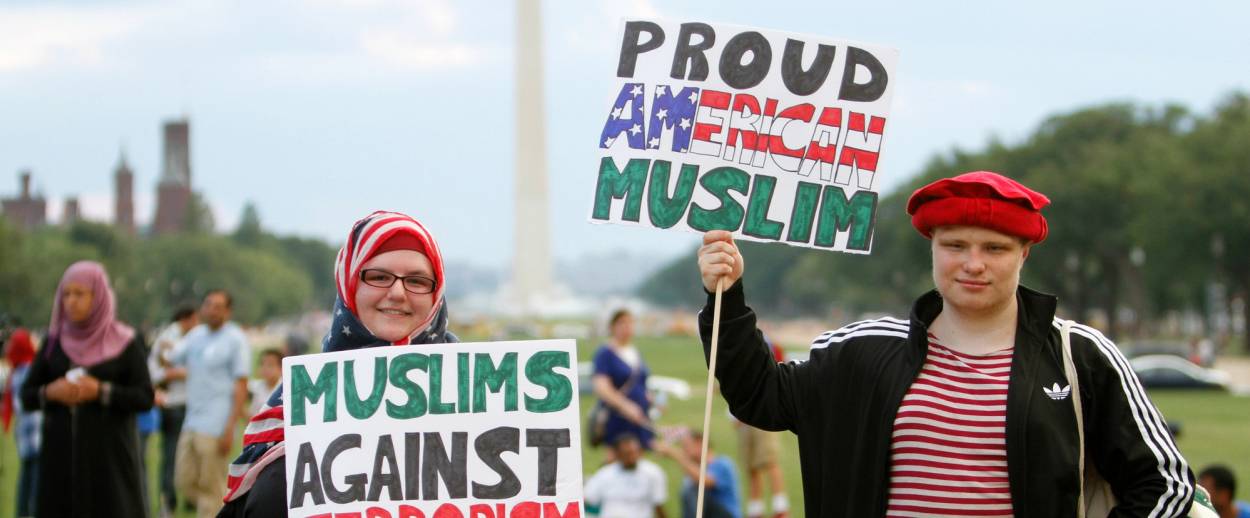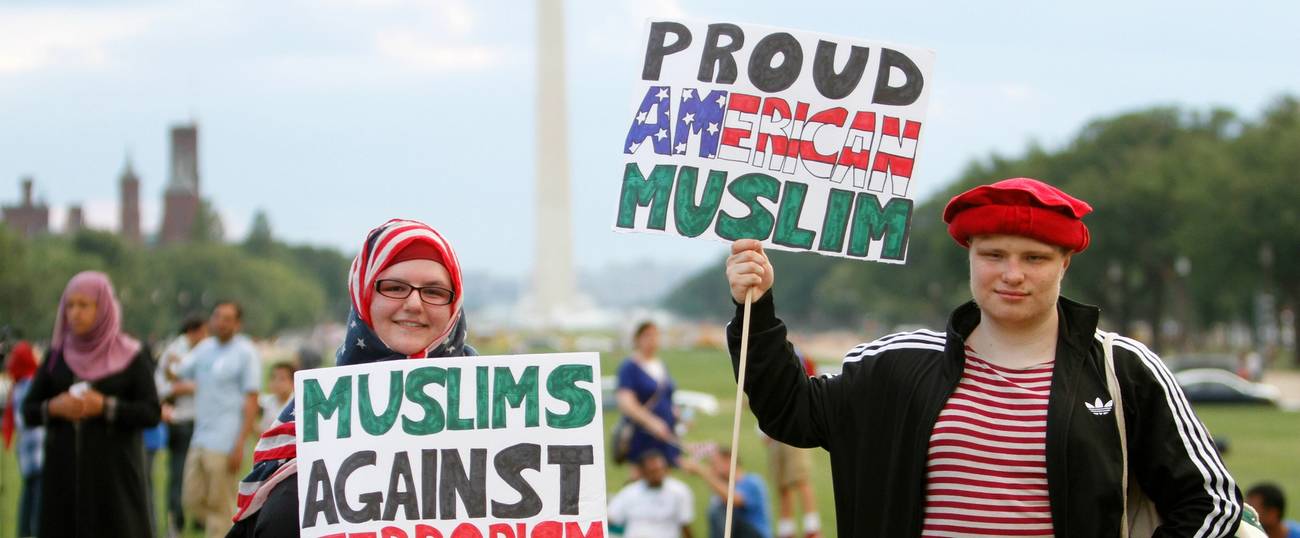Read Tablet’s ‘Muslim Voices After Trump’ Series
Over the past week, we’ve published articles by courageous voices in the American Muslim community. Here’s what they told us.




This past week, we did something here at Tablet that we’d never done before: we ran an entire series written by members of the Muslim faith. In the wake of Trump’s election, and the anti-Muslim rhetoric and proposals that fueled his rise, we felt it was important to place the experiences of those targeted front and center. And so we handed the microphone to fellows from the Muslim Leadership Initiative of the Shalom Hartman Institute, a diverse group of American Muslim leaders who have devoted months to studying the Jewish people and its history.
Here’s what they told us:
Haroon Moghul, a writer, scholar, and staff member at Hartman, wrote about how Stephen Bannon’s appointment made him realize he needed to pay closer attention to manifestations of anti-Semitism:
One thing I learned from my time at Hartman was how much more pervasive anti-Semitism was among some Muslims than I’d wanted to admit. One thing I learned over the last week was just how much more pervasive anti-Semitism is among some Americans than I would have guessed, and it’s terrifying to recognize how far and how fast that bias has come into the mainstream. Given the threats posed to both the American Muslim and Jewish communities, then, we refuse to work together at our own peril.
Alejandro Beutel of the Institute for Social Policy and Understanding wrote about how this election, his personal history, and his research into violent extremism underscored for him the pressing need for Jewish Muslim dialogue:
My emotional rollercoaster stems from this election’s collision with the multiple identities I embrace: I am the son of Jewish-Italian father and a Catholic Latina mother. I am also a Muslim by choice. (Yes, I still receive a lot of Jewish and Catholic guilt. No, I don’t get triple the holiday presents. That hasn’t happened since 2004 when Chanukah, Christmas, and Ramadan all coincided with each other.)
Amanda Quraishi wrote about how she became an accidental interfaith activist as a recent Muslim convert after 9/11, and how she learned that dealing with disagreement is crucial to such dialogue:
I realize now that the reason things fell apart so quickly between the Jews and Muslims I know was because the relationships we were building were, in a large sense, superficial. We talked about Abraham and hummus and Eid and Hanukkah. We talked about the things we had in common, and we completely avoided talking about points of disagreement—theological, political or otherwise. Relationships—real relationships—involve conflict, and that’s not a bad thing. Conflict is only bad when it is destructive. But productive conflict can, and does make us better individually and collectively.
Rabia Chaudry of the U.S. Institute of Peace and Serial fame wrote about why the American Jewish Committee and the Islamic Society of North America have joined forces to fight bigotry, and why some are trying to stop them:
American Muslims and Jews desperately need the leadership of their organizations now to do what is best to protect them right here, in America, in this moment of great anxiety about our future in this country. That leadership must expand to organize and build coalitions and alliances with those who we may never have engaged with before, who we adamantly disagree with on any number of issues, but with whom we also share common worries. Too much is on the line to do otherwise.
Yildirim Sivar, social entrepreneur, wrote about how participating in Hartman’s Muslim-Jewish retreat the weekend after the election helped him pull through that dark moment:
I found myself mingling with and listening to a number of Jewish communal leaders describing the urgency of alliances to combat anti-Semitism and bigotry towards other minorities. MLI’s importance was becoming clear to me. There was genuine love and cooperation in the room. The retreat felt almost like a big family getting together around the dinner table…
Hopefully, these voices will be the start of long-running and much-needed conversation here at Tablet between the American Jewish and Muslim communities. Read them all and pass them on.
Yair Rosenberg is a senior writer at Tablet. Subscribe to his newsletter, listen to his music, and follow him on Twitter and Facebook.